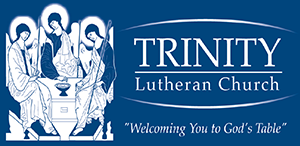In 1985, Wendell Berry, a farmer/philosopher/poet, wrote an essay with the title, “What Are People For?” He wrote about the huge reduction in the number of farmers in the United States, especially after World War II. This caused profound changes in many people’s lives. I am sure that there are people in our congregation who can resonate with this observation. Some of you grew up on farms or grew up helping out on local farms as one of your first jobs. I don’t know many teenagers today who are working on farms. In fact, I don’t know many people who live on farms and regularly participate in caring for the land.
“What are people for?” seems like an odd question. It’s not as if people had a function like a screwdriver or a power saw or a computer. Of course, people should not be categorized by function as if they were tools or machines, but “What are people for?” is an important question that we should not ignore. People do have a purpose, a goal or end toward which life is directed. We can reflect on these goals and have some say in choosing them or we can let them be assigned to us by the culture in which we live.
The underlying, often unspoken, assumption of our culture is that people are meant to consume. Consumption is what people are for. As consumers, our goal is to acquire more things. Our purpose is to accumulate as much stuff as possible. More is better. He who dies with the most toys wins. These beliefs are such a part of our lives that it may be difficult to realize that this primary identity as consumers is relatively new. The small farmers that made up more than half of the population less than one hundred years ago were primarily producers, not consumers. They cared for the land and animals and produced food. Their identity was producers and community members. Even people who lived in towns and cities and worked in shops and factories were not primarily consumers but producers. This is not to romanticize those days or to deny that working on a farm or in a factory in the early twentieth century was incredibly demanding, hard work. I lived on a ranch for a few years and milking the cows was part of my responsibilities for a portion of that time. Waking up at 3:30 am for the morning milking was not always my favorite thing to do. But there was a certain sense of satisfaction that came from caring for the animals and from bringing milk to the community of about sixty people who depended on those animals and us “dairy boys” for their milk. There was a sense of purpose and relationship with others.
It is impossible to get that same sense of satisfaction from buying a new CD, a new pair of sneakers, or even a new car. Buying new things can be a lot of fun. I like to get books, as anyone who is brave enough to go into my office knows very well. But there is a different kind of satisfaction, a more profound connection with the world and other people that one gets from making a contribution, from putting in effort and seeing a result that impacts someone else’s life. This can happen in a variety of places – at home, at work, at church, volunteering at a community event, working at a craft workshop…. It does take effort, but the effort is worth it.
Sometimes it can be impossible to find meaning in a job. Some jobs in our society are so far removed from adding to the common good that there seems to be no redeeming value in them. They are simply ways to make money. I imagine that being a telemarketer selling a product that one feels is useless would be the kind of job that does not have many intrinsic rewards. Ideally, people would not have to do these kinds of jobs because that is not what people are for.
“What are people for?” God made us to be co-creators with God. Beings who create things of beauty and utility. People are meant to make a positive difference in their world. People are designed to enjoy God and God’s creation and one another. People are made to live knowing God’s love for them and sharing that love with one another. When we forget what we are for and seek to find our identity and meaning in what we have rather than in who we are in relationship with God and one another, life can get pretty dissatisfying.
As you think about your life and how you spend your time, consider how you might see your work differently and spend your time differently. Think about the satisfaction that comes from spending time working and playing with people you care about. (And don’t forget resting, too. Sabbath is an important part of how we live in God’s grace.) Think about the joy that comes from worshiping God with your family of faith. Think about the difference you make in the world through your work and volunteer activities. Find ways to do these things that make a difference, that honor God and bless you and other people. That’s what people are for.
